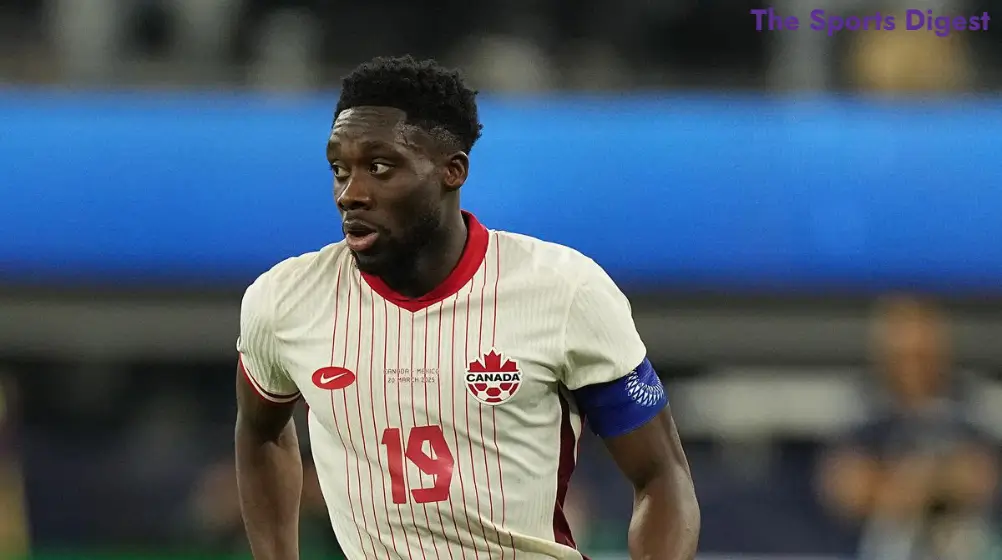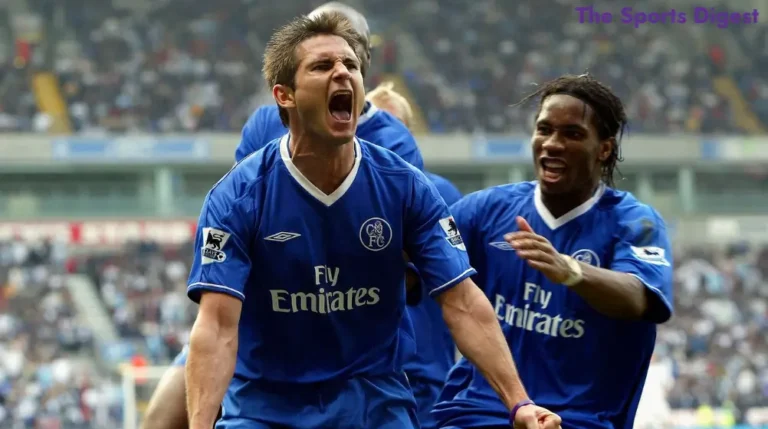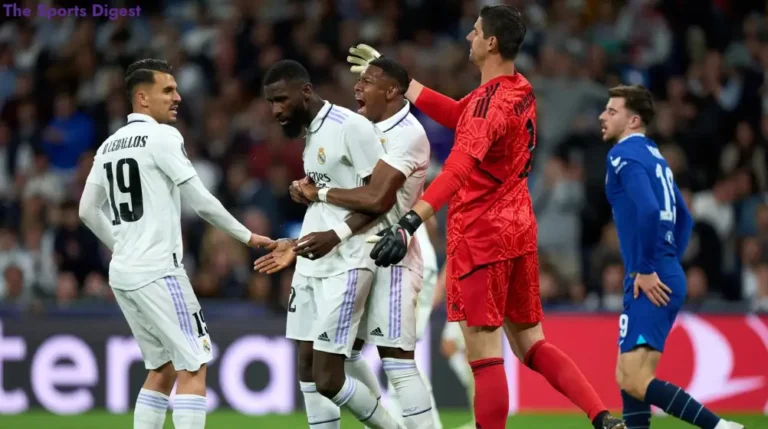Contract Renewals: Real Madrid’s Lesson to Bayern
In the world of football, securing top talents is a crucial part of long-term success. Bayern Munich has learned this lesson the hard way after losing key players like Toni Kroos and David Alaba to Real Madrid without receiving significant transfer fees. As a result, the Bavarian club has changed its strategy to focus on contract renewals and long-term commitments. The latest examples of this shift include Alphonso Davies and Jamal Musiala, two of Bayern’s brightest stars, who have extended their contracts until 2030. However, the saga isn’t over yet, as the club now faces a tough decision regarding Joshua Kimmich’s future.
This article will analyze the impact of these renewals, explore how Bayern Munich has adapted, and discuss the lessons Real Madrid has indirectly taught them in the competitive world of European football.
Table of Contents
Bayern Munich’s New Strategy: Learning from Past Mistakes and Contract Renewals
For years, Bayern Munich has been known for its financial discipline and reluctance to overspend on player wages. However, losing Toni Kroos to Real Madrid in 2014 for just €25 million was a turning point. The German midfielder went on to become one of the best midfielders of his generation, playing a key role in Madrid’s Champions League dominance. Similarly, David Alaba left for free in 2021, another blow for the Bavarians. Both players excelled at the Santiago Bernabéu, reinforcing the idea that Bayern needed to protect its assets better.
This realization led Bayern’s management to prioritize contract extensions and wage competitiveness to ensure they do not lose more world-class players for little to no compensation. The recent renewals of Davies and Musiala are clear signs of this new approach.

Alphonso Davies: Choosing Financial Security Over Real Madrid’s Interest
The transfer saga surrounding Alphonso Davies was one of the longest-running in European football. The Canadian full-back was heavily linked with Real Madrid, and at certain points, his move to the Spanish giants seemed inevitable. However, Bayern Munich acted decisively by offering Davies a lucrative contract renewal until 2030 with a salary of €15 million per year, plus a €15 million signing bonus. This offer far exceeded what Madrid was willing to pay.
Why Did Davies Choose Bayern?
- Financial Stability – Bayern’s offer provided guaranteed financial security, while Madrid was unwilling to match the wages.
- Consistent Playing Time – In Munich, Davies remains a key starter, whereas at Madrid, competition for places is fierce.
- Familiarity and Comfort – Having spent years at Bayern, Davies opted for stability rather than taking a risk in a new league.
After signing the contract, Davies expressed his joy, stating: “I am very happy to extend my contract with this great club. I joined Bayern when I was 18, and my goal was to improve every day. Now, I am looking forward to five more years of success.”
His decision highlights Bayern’s determination to retain their best talents, even in the face of strong interest from the world’s biggest clubs.
Jamal Musiala: Bayern’s Future Secured & Contract Renewals
Another major success in Bayern’s contract renewal strategy was securing Jamal Musiala until 2030. The 21-year-old attacking midfielder, considered one of the brightest young talents in Europe, was also linked with Real Madrid, where he could have reunited with Jude Bellingham. However, Bayern made an aggressive move by offering him a €25 million per year contract, making him the highest-paid player at the club alongside Harry Kane.
The Importance of Musiala’s Renewal
- Symbol of Bayern’s Future – As a young, dynamic playmaker, Musiala is seen as the cornerstone of Bayern’s long-term project.
- Market Signal – Bayern’s ability to secure such a talent sends a message to rival clubs that they are willing to invest heavily in their squad.
- Transfer Value Protection – By locking him into a long-term deal, Bayern ensures that if he ever leaves, it will be for a record-breaking fee.
Musiala expressed his excitement, saying: “I’m very happy. Bayern is one of the biggest clubs in the world, and I believe I can achieve great things here.”
This renewal was a bold statement from Bayern Munich, reinforcing their commitment to retaining top talents despite European competition.
Joshua Kimmich: The Next Big Decision & Contract Renewals
While Bayern has successfully secured Davies and Musiala with contract renewals, the next major challenge is Joshua Kimmich’s contract renewal. The German midfielder, known for his leadership and versatility, has been hesitant about extending his stay in Munich. His contract expires in 2025, and the club initially offered him an extension until 2028, which he has yet to accept.
Why Is Kimmich Hesitant?
- Interest from Other Clubs – Manchester City, Real Madrid, and Barcelona have all shown interest.
- Bayern’s Midfield Evolution – With new signings arriving, Kimmich might be questioning his role in the team.
- Financial Considerations – If he leaves, he could potentially secure a more lucrative contract elsewhere.
Bayern, frustrated with the uncertainty, has withdrawn their initial offer and given Kimmich an ultimatum: sign the extension or face the possibility of being sold.
What Happens Next?
- If Kimmich renews, Bayern will have successfully retained their core midfield presence.
- If he refuses, Bayern might be forced to sell him in the next transfer window to avoid losing him for free.
- If Real Madrid or City make a move, Kimmich could follow the path of Kroos and Alaba, adding to the list of players Bayern lost to bigger European rivals.
The Real Madrid Influence: How Los Blancos Shaped Bayern’s Approach & Contract Renewals
Bayern Munich’s new approach to contract renewals is largely a reaction to Real Madrid’s transfer market efficiency. Madrid has perfected the art of securing world-class talents, often taking advantage of contract mismanagement by other clubs.
- Key Lessons Bayern Learned from Madrid:
- Avoid Losing Stars for Free – Alaba’s departure to Madrid forced Bayern to change its strategy.
- Offer Competitive Wages – Madrid’s ability to lure players with attractive salaries and signing bonuses set a new market standard.
- Act Before It’s Too Late – The proactive renewal of Musiala and Davies shows Bayern’s commitment to avoiding another Kroos scenario.
While Bayern is one of Europe’s biggest clubs, they have learned that in today’s football economy, contract renewals are just as important as big-money transfers.
Conclusion
Bayern Munich’s response to past mistakes has been clear: secure top talents before they become transfer targets for rivals. The contract extensions of Alphonso Davies and Jamal Musiala prove their commitment to this strategy. However, Joshua Kimmich’s future remains uncertain, and his decision could either reinforce Bayern’s newfound strength or expose remaining vulnerabilities.
Real Madrid, directly or indirectly, has played a role in shaping Bayern’s transfer policies. The coming months will reveal whether Bayern has fully learned from their past missteps or if Madrid will once again capitalize on their hesitation. One thing is certain—the battle for Europe’s top talents is fiercer than ever.
Have you ever read an article like this?
There are no reviews yet. Be the first one to write one.






